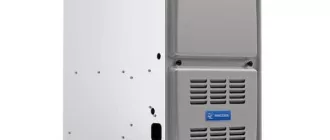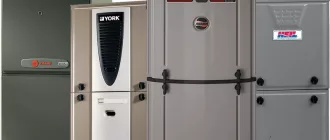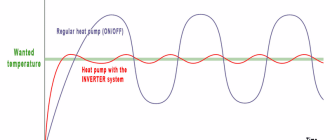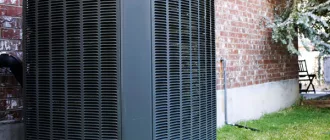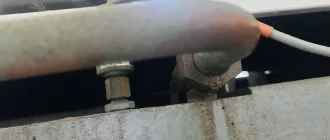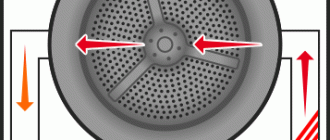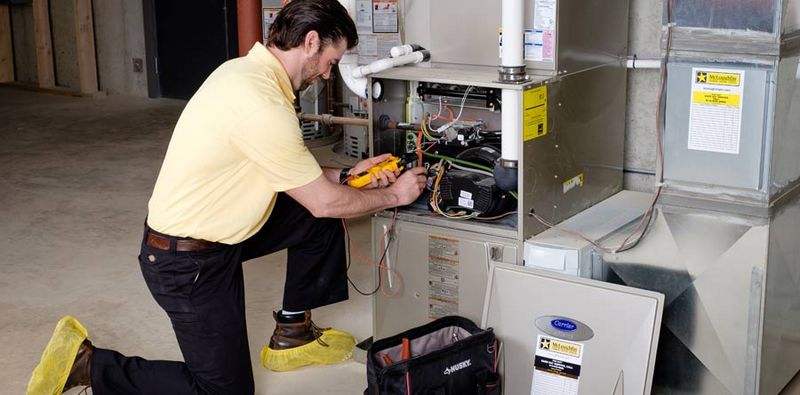
Essential Furnace Repair Tips Every Homeowner Should Learn: Insights from an HVAC Professional
When it comes to keeping your home warm and comfortable during the winter months, a properly functioning furnace is essential. However, like any other mechanical system, furnaces can break down over time. Instead of waiting for a costly repair or replacement, there are several maintenance tips that every homeowner should know to maximize the lifespan of their furnace.
One essential tip that the HVAC pro reveals is to regularly change the furnace filter. This simple task can prevent clogs and improve airflow, increasing the efficiency of your furnace. Additionally, the pro recommends scheduling an annual maintenance inspection by a professional to catch any potential issues before they become major repair problems.
Another important tip is to pay attention to any unusual sounds or smells coming from your furnace. These can be signs of a pending breakdown or other serious problems. If you notice anything out of the ordinary, it is crucial to contact a certified technician to diagnose and repair the problem promptly.
In summary, every homeowner should be aware of these furnace repair tips to ensure their home stays warm and comfortable throughout the winter. By regularly changing the filter, scheduling annual maintenance inspections, and addressing any strange sounds or smells promptly, you can extend the life of your furnace and avoid costly repairs. Remember, a well-maintained furnace is the key to a cozy home during the colder months.
HVAC Pro Reveals Furnace Repair Tips
Every homeowner should be aware of some essential furnace repair tips to ensure proper functioning and prevent costly breakdowns. An HVAC pro, who specializes in furnace maintenance and repair, reveals some valuable insights that can save you time and money.
First, it is crucial to regularly inspect and clean your furnace. Dust, debris, and dirt can accumulate over time, affecting the efficiency and performance of your furnace. A thorough cleaning can improve airflow and reduce the risk of overheating. Additionally, checking and replacing the air filters every few months can significantly extend the lifespan of your furnace.
Second, homeowners should pay attention to any unusual smells, sounds, or leaks coming from their furnace. These can be early warning signs of a potential problem. If you notice a burning smell, strange noises like banging or rattling, or any water leakage, it is recommended to contact an HVAC professional immediately. Ignoring these signs can lead to more severe issues and costly repairs down the line.
Another important tip is to keep the area around your furnace clear and well-ventilated. Avoid storing flammable items near the furnace as they can pose a fire hazard. Additionally, ensuring proper ventilation will prevent the buildup of carbon monoxide, a colorless and odorless gas that can be harmful if not properly vented.
Lastly, scheduling regular professional maintenance for your furnace is crucial for its longevity and performance. An HVAC pro can identify and fix minor issues before they turn into major problems, saving you from expensive repairs and potential furnace replacements.
By following these furnace repair tips, every homeowner can ensure that their HVAC system operates smoothly and efficiently, providing optimal comfort throughout the year.
Furnace Repair Tips: DIY vs Professional
When it comes to furnace repair, every homeowner should know some basic tips to keep their HVAC system running smoothly. In some cases, you may be able to troubleshoot and fix the issue yourself, saving time and money. However, there are instances where it is best to leave the repair to a professional.
Here are some tips to help you decide whether to attempt a DIY furnace repair or call in a pro:
- Evaluate the severity of the problem: If your furnace is completely non-functional or if there is a major mechanical issue, it is best to hire a professional. They have the experience and knowledge to handle complex repairs and ensure your furnace is fixed correctly.
- Assess your own skills and knowledge: If you have experience with HVAC systems and feel comfortable working with electricity and gas, you may be able to tackle minor repairs yourself. However, if you are unsure or inexperienced, it is safer to hire a professional to avoid causing further damage or jeopardizing your safety.
- Consider warranty coverage: If your furnace is still under warranty, attempting a DIY repair may void the warranty. It is important to check the terms of your warranty before attempting any repairs yourself.
- Weigh the cost and time commitment: While DIY repairs can save money, they can also be time-consuming and may require purchasing specialized tools or parts. If your time is limited or the repair requires expensive equipment, it may be more cost-effective to hire a professional.
- Safety first: Furnaces involve potentially dangerous components like gas and electricity. If you are not confident in your ability to work with these safely, it is best to leave the repair to a professional who knows how to handle them properly.
Ultimately, the decision to attempt a DIY furnace repair or hire a professional depends on the nature of the problem, your level of expertise, and the potential risks involved. It is always a good idea to consult with a trusted HVAC professional before attempting any furnace repairs to ensure your safety and the proper functioning of your HVAC system.
Common Furnace Problems and Solutions
As a homeowner, it’s important to be familiar with common furnace problems that can occur so you can address them in a timely manner. Here are some tips from a HVAC pro on common furnace problems and their solutions:
1. No Heat: If your furnace isn’t producing any heat, check the thermostat to ensure it’s set to the desired temperature. If the thermostat is set correctly, check the circuit breaker to make sure the furnace is receiving power. If these checks don’t resolve the issue, it might be a problem with the igniter, gas valve, or pilot light. In such cases, it’s best to call a professional for repair.
2. Insufficient Heat: If your furnace is producing some heat but not enough to keep your home warm, it could be due to dirty air filters or blocked air vents. Check the air filters and replace them if they are dirty. Also, make sure all air vents are clear from any obstructions. If the issue persists, it could be a problem with the blower motor or heat exchanger, which require professional repair.
3. Constant Cycling: If your furnace keeps cycling on and off frequently, it could be a problem with the thermostat settings or the limit switch. Check the thermostat settings to ensure they are accurate and set at the desired temperature. If the thermostat is set correctly, the limit switch might need adjustment or replacement, which should be done by a professional.
4. Loud Noises: Unusual noises coming from your furnace, such as banging, clanging, or squealing, can indicate a problem. These noises could be due to loose or broken parts, worn-out bearings, or airflow issues. It’s best to call a professional to diagnose and repair the problem to prevent further damage to your furnace.
5. High Energy Bills: If your energy bills suddenly increase without any major changes in your usage, it could be a sign of an inefficient furnace. Poor maintenance, dirty filters, or inefficient components can cause your furnace to work harder and consume more energy. Regular maintenance and cleaning, along with professional inspection and repair, can help address this issue and lower your energy bills.
Remember: Regular maintenance and inspection of your furnace can help prevent many common problems. It’s recommended to schedule professional maintenance at least once a year to keep your furnace in optimal condition and ensure efficient operation.
In conclusion, being aware of common furnace problems and their solutions can help homeowners ensure that their furnaces are functioning properly. If you encounter any issues that you are not comfortable addressing on your own, it’s always best to call a professional HVAC technician for repair.
Signs Your Furnace Needs Repair
If you own a home, it’s important to know the signs that your furnace may need repair. Ignoring these signs can lead to bigger problems down the line and potentially costly repairs. Here are some tips to help you identify when your furnace needs professional attention:
- 1. Inconsistent heating: If some rooms in your house are significantly colder than others, or if the temperature fluctuates frequently, it could be a sign that your furnace is not functioning properly.
- 2. Loud or strange noises: Unusual noises, such as banging, clanking, or squealing, coming from your furnace could indicate loose or damaged parts that need repair.
- 3. Increased energy bills: If you notice a sudden increase in your energy bills without any other explanation, your furnace may be working harder than necessary due to a repair issue.
- 4. Frequent on/off cycling: If your furnace constantly turns on and off, it could be a sign of a faulty thermostat, dirty filters, or other repair issues.
- 5. Yellow burner flame: A yellow or flickering burner flame instead of a steady blue flame is a sign of a potential carbon monoxide leak, which requires immediate attention.
- 6. Strange odors: Unusual smells, such as a burning or musty odor, coming from your furnace could indicate a variety of issues, including overheating or mold growth.
Remember, when in doubt, it’s always best to contact a professional HVAC technician to assess and repair your furnace. They have the knowledge and expertise to properly diagnose and fix any issues, ensuring the safety and efficiency of your heating system.
Troubleshooting Furnace Issues
Every homeowner should know some essential tips for troubleshooting furnace issues. HVAC Pro reveals that a well-maintained furnace is essential for a comfortable home. Here are some furnace repair tips to help you keep your HVAC system in top shape.
1. Check the thermostat: Make sure the thermostat is set to the desired temperature and is functioning properly. If the thermostat is not working, it may need new batteries or be replaced altogether.
2. Replace the air filter: A clogged air filter can restrict airflow and cause the furnace to work harder. Replace the air filter regularly to keep your furnace running efficiently.
3. Inspect the vents and registers: Ensure that all vents and registers are open and not blocked by furniture or other objects. Blocked vents can decrease airflow and affect the performance of your furnace.
4. Check the circuit breaker: If your furnace is not turning on, check the circuit breaker to see if it has tripped. Reset the breaker if necessary and see if that resolves the issue.
5. Listen for unusual sounds: Strange noises coming from your furnace can indicate a problem. Pay attention to any clanking, banging, or whistling sounds and contact a professional HVAC technician for further inspection.
6. Look for visible signs of damage: Inspect your furnace for any visible signs of damage such as leaks, cracks, or corrosion. These issues should be addressed immediately to prevent further problems.
By following these tips, every homeowner can troubleshoot common furnace issues and ensure their HVAC system works efficiently. However, for more complex problems or if you are unsure about any repairs, it is always best to consult a professional HVAC technician.
Furnace Maintenance Tips for Homeowners
As a homeowner, it is important to properly maintain your HVAC system, including your furnace. Regular maintenance can help prevent costly repairs and ensure your furnace is working efficiently. Here are some furnace maintenance tips that every homeowner should know:
| Tips: |
| 1. Schedule regular professional inspections: Hire an HVAC pro every year to inspect and clean your furnace. They can identify any potential issues and ensure proper functioning. |
| 2. Change the air filters: Dirty air filters can restrict airflow and put a strain on your furnace. Replace them regularly, usually every 1-3 months. |
| 3. Clean the vents and ducts: Dust and debris can accumulate in your vents and ducts, hindering airflow. Regularly clean them to maintain proper airflow and prevent blockages. |
| 4. Check and clean the blower motor: The blower motor is responsible for distributing heated air. Clean it regularly and ensure it is in good condition for optimal performance. |
| 5. Monitor thermostat settings: Ensure your thermostat is set correctly to prevent unnecessary strain on your furnace. Adjust the temperature settings according to your comfort and seasonal needs. |
| 6. Keep the area around the furnace clear: Remove any debris or clutter around your furnace to prevent fire hazards and allow for proper ventilation. |
| 7. Be mindful of strange noises or smells: If you notice any unusual noises or smells coming from your furnace, it may indicate a problem. Contact a professional for repair. |
| 8. Install carbon monoxide detectors: Furnaces can emit carbon monoxide, a dangerous gas. Install detectors near your furnace and throughout your home for added safety. |
| 9. Keep a record of maintenance: Maintain a record of all maintenance and repairs performed on your furnace. This can help identify patterns and provide documentation for warranty claims. |
| 10. Consider a preventive maintenance plan: Some HVAC companies offer preventive maintenance plans, which include regular inspections and discounted repairs. Consider signing up for one to save money and ensure proper furnace care. |
By following these tips, you can prolong the lifespan of your furnace and keep it running efficiently, saving you money in the long run. Remember, if you are unsure about any aspect of furnace maintenance or repair, it is always best to seek professional help.
How to Extend the Lifespan of Your Furnace
As an HVAC pro, I have seen homeowners struggle with furnace repairs more times than I can count. The truth is, maintaining and extending the lifespan of your furnace is easier than you might think. By following a few simple tips, you can keep your furnace running efficiently and avoid costly repairs.
One of the most important things every homeowner should do is regularly replace air filters. A clogged or dirty air filter can restrict airflow and put unnecessary strain on your furnace, leading to decreased efficiency and potential breakdowns. I recommend checking your air filter every month and replacing it every three months or sooner if it appears dirty. This simple step can significantly extend the lifespan of your furnace.
Another crucial maintenance task is cleaning the blower assembly. Over time, dust and debris can accumulate in the blower assembly, hindering its performance. I advise turning off the power to your furnace and carefully cleaning the blower blades and housing with a soft brush or vacuum. By doing this once or twice a year, you can prevent excessive wear on the blower motor and extend the lifespan of your furnace.
Furthermore, regular inspections and tune-ups by a professional HVAC technician are essential for maintaining your furnace. A trained pro can identify and fix minor issues before they turn into major repairs. Additionally, they will clean and lubricate the furnace components, ensuring optimal performance and efficiency. I recommend scheduling a yearly maintenance appointment to keep your furnace running smoothly.
In addition to these maintenance tasks, it’s important to be mindful of how you operate your furnace. Avoid constantly adjusting the thermostat, as it can strain the heating system and decrease its lifespan. Instead, set a comfortable temperature and leave it alone. Additionally, make sure your home is properly insulated to minimize heat loss and give your furnace a break. By creating a comfortable and energy-efficient environment, you can extend the lifespan of your furnace.
| Tip: | Regularly replace air filters. | |||||||||||||||||||
| Benefit: | Improved furnace efficiency and decreased risk of breakdowns. | |||||||||||||||||||
| Tip: | Clean the blower assembly. | |||||||||||||||||||
| Benefit: | Extended blower motor lifespan and improved performance. | |||||||||||||||||||
| Tip: | Schedule regular maintenance with an HVAC technician. | |||||||||||||||||||
| Benefit: | Prevention of major repairs and optimal furnace performance. | |||||||||||||||||||
| Tip: | Avoid constant thermostat adjustments. | |||||||||||||||||||
Benefi
Benefits of Regular Furnace InspectionsRegular furnace inspections are essential for every homeowner to ensure the smooth and efficient operation of their heating system. HVAC professionals recommend that furnace inspections should be conducted at least once a year to prevent potential issues and ensure optimal performance. Here are some key benefits of regular furnace inspections:
By scheduling regular furnace inspections with a professional HVAC technician, homeowners can reap these benefits and ensure that their heating system is in top-notch condition. It is a small investment that can save money, prevent unexpected breakdowns, and provide peace of mind. Choosing the Right HVAC ContractorWhen it comes to HVAC repair, every homeowner should know how to choose the right pro for the job. Finding a reputable and reliable HVAC contractor is essential to ensure your furnace is repaired correctly and efficiently. Here are some tips that every homeowner should follow when selecting an HVAC contractor: 1. Research and Recommendations: Start by doing your research. Look for HVAC contractors in your area and read reviews from previous customers. Ask friends and family for recommendations to find contractors they have had positive experiences with. 2. Licensing and Certification: Ensure that the HVAC contractor you choose is licensed and certified. A valid license and certification prove that the contractor has the necessary skills and knowledge to handle your furnace repair. 3. Insurance: Check if the HVAC contractor has liability insurance. This is important in case any damages occur during the repair process. A contractor with insurance will protect you from any liability. 4. Experience: Look for HVAC contractors with years of experience in the industry. An experienced contractor will have encountered various furnace issues and will be better equipped to handle any repair job. 5. Written Estimates: Obtain written estimates from multiple HVAC contractors. This will give you a better understanding of the costs involved and help you compare different contractors. Be cautious of any contractor who gives you a verbal estimate without any written documentation. 6. References: Ask the HVAC contractor for references from previous clients. Contact these references and inquire about their experiences with the contractor. This will give you a more accurate picture of the contractor’s professionalism and reliability. 7. Warranty: Inquire about the warranty options provided by the HVAC contractor. A reputable contractor will offer warranty coverage for their repair work. This will ensure that you are protected in case any issues arise after the repair is complete. Remember, choosing the right HVAC contractor is crucial for a successful furnace repair. By following these tips, you can find a pro who will efficiently and effectively handle your HVAC needs. Cost of Furnace Repair: What to ExpectEvery homeowner should be aware of the potential costs associated with furnace repair. Knowing what to expect can help you determine whether a repair is worth the price or if it may be more cost-effective to invest in a new furnace. When it comes to furnace repair, the cost can vary depending on the specific issue and the HVAC pro you hire. It is important to get multiple quotes from different professionals to ensure you are getting a fair price. Some common furnace repair tips that every homeowner should know include:
The average cost of furnace repair can range from $100 to $1,000, depending on the severity of the issue. Common repairs, such as replacing a faulty thermostat or a clogged filter, tend to be on the lower end of the price spectrum. On the other hand, more complex repairs, such as fixing a malfunctioning blower motor or replacing a faulty heat exchanger, can be on the higher end of the price range. It is important to keep in mind that these are just average costs, and the actual price can vary. Factors such as the type and age of your furnace, the extent of the damage, and the location can all affect the cost of the repair. Additionally, emergency repairs or repairs outside of regular business hours may come with additional charges. To ensure you are getting a fair price for your furnace repair, it is recommended to get multiple quotes and compare them. This will help you determine the average cost in your area and find a reputable HVAC pro who can provide quality service at a reasonable price. In conclusion, understanding the potential cost of furnace repair is essential for every homeowner. By knowing what to expect, you can make informed decisions about whether to proceed with a repair or consider other options. Remember to prioritize regular maintenance and address issues promptly to help prevent costly repairs in the future. Preventing Furnace Repair: Tips for HomeownersEvery homeowner should know how to prevent furnace repair issues. HVAC pro reveals some tips on how to keep your furnace running smoothly:
By following these tips, homeowners can greatly reduce the need for furnace repair and keep their HVAC systems running smoothly all year round. Importance of Furnace SafetyWhen it comes to maintaining a safe living environment, homeowners should prioritize furnace safety. It is crucial to follow these tips to ensure the proper functioning and longevity of your furnace:
By following these furnace safety tips, homeowners can ensure the well-being and comfort of their families while avoiding costly repairs and dangerous situations. Remember, a well-maintained furnace is not only efficient but also safe. Understanding Furnace Efficiency RatingsWhen it comes to purchasing a new furnace for your home, understanding furnace efficiency ratings is crucial. These ratings can help you determine the energy efficiency of a furnace and make an informed decision about which model is right for your needs. Here are some important tips to keep in mind: 1. Look for the Annual Fuel Utilization Efficiency (AFUE) rating. This rating measures how efficiently a furnace converts fuel into heat over the course of a year. A higher AFUE rating means a more efficient furnace. 2. Consider ENERGY STAR® certified furnaces. These models have been independently tested and verified to meet strict energy efficiency guidelines set by the Environmental Protection Agency (EPA). Choosing an ENERGY STAR® certified furnace can help you reduce your energy bills and minimize your environmental impact. 3. Understand the difference between single-stage and two-stage furnaces. Single-stage furnaces operate at full capacity all the time, while two-stage furnaces have a low and high setting. Two-stage furnaces offer greater energy efficiency and more precise temperature control. 4. Don’t forget about the fan efficiency rating. The fan in your furnace helps distribute heat throughout your home. Look for a furnace with a high fan efficiency rating to ensure optimal performance and energy efficiency. 5. Consider the size of your home. Furnaces come in various sizes, and it’s important to choose one that is properly sized for your home. An oversized furnace will cycle on and off frequently, which can lead to inefficient operation and increased energy costs. By understanding furnace efficiency ratings and considering these tips, you can make a well-informed decision when it comes to purchasing a new furnace for your home. Remember, investing in a highly efficient furnace can result in long-term energy savings and improved comfort for you and your family. Q&A:How often should I have my furnace serviced?It is recommended to have your furnace serviced once a year. Regular maintenance can help prevent costly repairs and ensure your furnace is operating efficiently. What are common signs of a faulty furnace?Common signs of a faulty furnace include strange noises, uneven heating, frequent cycling, increased energy bills, and a yellow pilot light. If you notice any of these signs, it is important to have your furnace inspected and repaired as soon as possible. Can I attempt to repair my furnace on my own?While there are some minor furnace repairs that can be done by homeowners, it is generally recommended to leave furnace repairs to professionals. Furnaces are complex systems, and attempting to repair them without proper knowledge and experience can cause further damage and potentially be dangerous. How can I extend the lifespan of my furnace?There are several ways to extend the lifespan of your furnace. Regular maintenance, such as changing the air filter regularly and having the furnace serviced annually, can help prevent unnecessary wear and tear. Additionally, ensuring proper airflow around the furnace and keeping the area clean can also contribute to its longevity. What should I do if my furnace is not heating my home properly?If your furnace is not heating your home properly, there are a few steps you can take. First, check that the thermostat is set to the desired temperature. Next, make sure the air filter is clean and not clogged. If these steps do not solve the issue, it is recommended to call a professional HVAC technician to diagnose and repair the problem. How often should I have my furnace inspected?It is recommended to have your furnace inspected at least once a year. Regular maintenance can help identify any potential issues and ensure that your furnace is running efficiently. |

